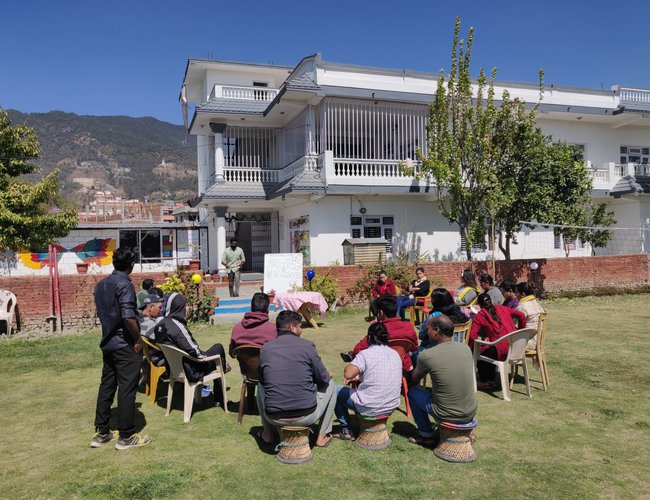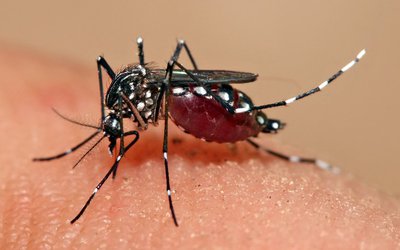
Being mentally healthy doesn't just mean an absence of a mental health problem, it means the ability to make the most of one's potential, ability to cope up with life and difficulties, play a full part in your family, workplace, community and among others. It is as good as physical health.
Similar to physical health, one's mental health doesn't remain the same; it can change as per the circumstances and at different stages of our lives. At times we may bounce back from a setback, and sometimes we may weigh down for a long time. We all have times when we feel down, stressed or frightened. Many a time such feelings pass, but sometimes they may develop into a more severe problem. Given the COVID-19 pandemic conditions, many people could develop Post Traumatic Stress Disorder (PTSD) or Severe Anxiety Disorder (SAD), andmayhave to undertake psychological therapies for fear, anxiety and the pandemic-related uncertainties.
In our society, when we talk about mental health problems, people tend to feel uncomfortable to share their condition and feelings. They fear being judged, losing a relationship, losing their job, and the respect they have in society. People wait for the worst stage to happen where they lose their control on emotions, anger, stability and then seek help. We need to act now to prevent this and the best thing to do is to be kind to ourselves as well as others.
In COVID-19 pandemic conditions, the Mental Health Awareness Week 2020 theme is to promote kindness. A quality of being friendly, generous and considerate to all people, especially those who have mental illness and those caring for the mentally ill. It can be easy, to forget yourself when you are busy caring for others; but when you are kind to yourself, it is much easier to be kind to others. Kindness to ourselves can prevent shame from corroding your sense of identity and help boost our self-esteem. Being empathetic, compassionate can even improve one's feelings of confidence and optimism.
Positive mental health and being kindness are well connected. Kindness in the form of giving, receiving, and even witnessing a kind act, have proved to reward our mind and bodies with good feeling-hormones like oxytocin, serotonin and dopamine. Witnessing an act of kindness releases oxytocin, that helps in boosting our self-esteem, optimism, lower blood pressure and improve overall health. Being kind to others also decreases stress and anxiety due to positive effects on relaxation, trust and overall psychological stability. If you comfort someone who has lost a loved one, your brain may release oxytocin too. Oxytocin is sometimes called the love hormone, since it makes us more trusting, generous, and friendly, and helps us bond with others.
Kindness also stimulates the production of serotonin, the 'happy hormone'. Serotonin helps regulate bodily functions such as sleep, digestion and mood. Increasing levels of serotonin can improve one's mood, which in turn can increase happiness and decrease anxiety, as well as reduce feelings of depression.
Finally, when we are kind to others, the reward centre in our brain is activated, releasing dopamine, the 'pleasure hormone'. This hormone can uplift your feelings, and your experience when delivering an act of kindness. Dopamine also helps to regulate memory, concentration, increase appetite, attention span and sleep. Therefore, dopamine has been associated with increased performance and energy, improved sleep and decreased pain – all of which would improve our mental health. When combined, these three feel-good hormones can have significant positive effects on our mental and physical health. Hence one can release them with the act of kindness to oneself and others
We need to do things to reward ourselves, like taking out'me time' and pursuing hobbies or something we like doing, setting goals to focus on, and organizing time and resources to achieve those goals. Be self-aware by understanding your strengths, weakness, emotions. This will help to build confidence to interact with others. Be mindful by being aware of the internal thoughts, feelings and behaviours, practice meditation to improve calmness, concentration and emotional balance. Exercise regularly as it has positive effects on both mental and physical health, soothe yourself by taking a nice hot bath in cold winter weather, listen to music, make your favourite hot drink and watch a film to relax after a long day. Don't compare yourself with others and believe in yourself.
Once you have looked after yourself, helping others will boost your happiness even further. Like smiling releases the feel-good hormones in your brain and as smiling is contagious, the person you smile at will also get the feel-good chemicals. It is a win-win situation to help others. Stay connected – maintaining relationships with people you trust is important for our mental well-being. Whether over the phone, via messages or online, talking to others can help you feel better by sharing your thoughts and feelings. Appreciate others, show someone you appreciate them by saying 'thank you' or acknowledging their support.Give compliments, complimenting others will benefit both you and the receiver. By making others feel good, you, in turn, will feel good, and that will provide everyone with a psychological reward.
The author is the Director of Chaitanya Institute for Mental Health, Nepal. You may write to us: chaitanyarehabnepal@gmail.com.
- Mental Health Challenges
- Apr 08, 2024
- How To Practice Emotional First Aid?
- May 13, 2023
- Mind Your Plate
- Jun 07, 2021















